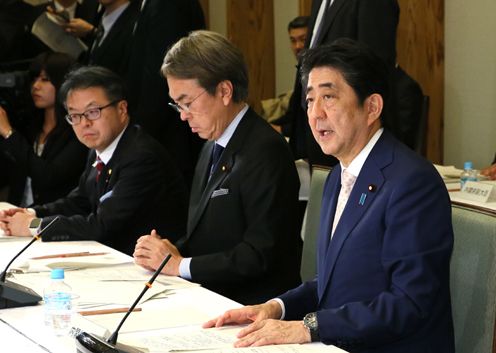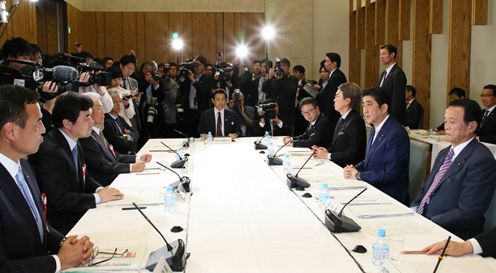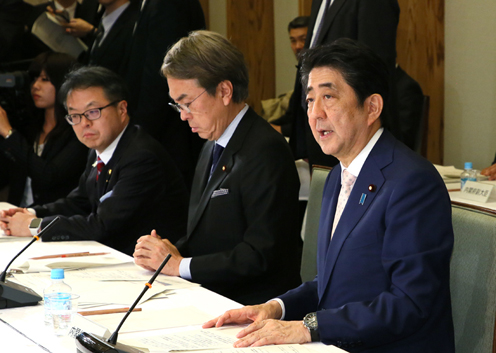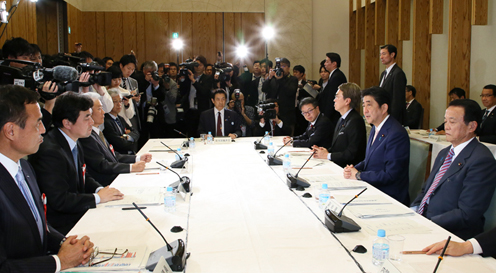Home > News > The Prime Minister in Action > April 2017 > Meeting of the Council on Economic and Fiscal Policy
The Prime Minister in Action
Meeting of the Council on Economic and Fiscal Policy
April 12, 2017

Photograph of the Prime Minister making a statement (1)

Photograph of the Prime Minister making a statement (1)

Photograph of the Prime Minister making a statement (2)
[Provisional Translation]
Prime Minister Shinzo Abe held the fifth meeting in 2017 of the Council on Economic and Fiscal Policy at the Prime Minister's Office.
At the meeting, discussions took place on revitalizing consumption and social security reform.
Based on the discussions, the Prime Minister said,
"First, we had a discussion on revitalizing consumption. Influences on changes in consumption trends include young people's income instability and changes in consumption structure. We heard the views of private sector members that along with continuously expanding disposable income, latent demand should be actualized.
To that end, in addition to requesting the business community to continue to implement improvement of employment conditions, we will revitalize consumption by advancing workstyle reform, such as by increasing the minimum wage and submitting a bill to realize equal pay for equal work.
Second, we had a discussion on social security reform. We heard the views of private sector members that in regions where per capita medical costs are high, there is a trend for nursing care costs to also be high, and that along with advancing health promotion and preventive healthcare, integrated reform of medical and nursing care should be carried out. In response, Minister Shiozaki stated that he would fundamentally strengthen insurer functions and prefectural governance through data utilization and incentive reforms.
In 2025, members of Japan's baby-boomer generation will all be over 75 years old, and it is expected that medical and nursing care needs will undergo major changes. That is just eight years from now, and we must ensure that each patient in every region can receive appropriate medical and nursing care in an appropriate place.
As the first step toward achieving this, the formulation of regional medical schemes, including the prospective number of hospital beds required in each region, was completed in all prefectures by the end of March, thus clarifying the future vision.
Next comes the stage of implementation, and we must determine the schedule and measures toward realizing these schemes. In doing so, it is important to advance measures based on utilizing data to the maximum extent possible, making measures sustainable and effective over the medium and long terms, and ensuring that this becomes a model for other Asian countries.
Centered on Minister Shiozaki and taking into consideration the views of the private sector members, I would like you to consider and implement with a sense of urgency effective measures such as the horizontal roll-out of best practices of municipalities, and measures for the smooth conversion of hospital beds to meet needs."


